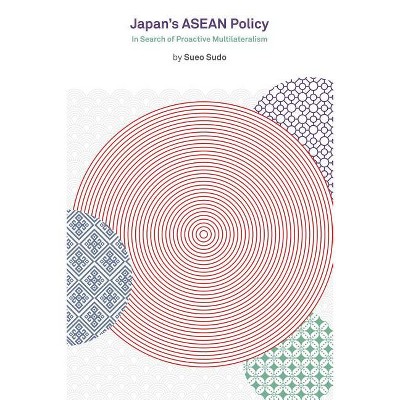Japan's Policy Trap - by Akio Mikuni & R Taggart Murphy (Paperback)

About this item
Highlights
- "Until quite recently, the Japanese inspired a kind of puzzled awe.
- About the Author: Akio Mikuni is one of the most universally respected analysts of the Japanese economy in the global financial community.
- 294 Pages
- Business + Money Management, Economic Conditions
Description
About the Book
"Until quite recently, the Japanese inspired a kind of puzzled awe. They had pulled themselves together from the ruin of war, built at breakneck speed a formidable array of export champions, and emerged as the world's number-two economy and largest net creditor ...
Book Synopsis
"Until quite recently, the Japanese inspired a kind of puzzled awe. They had pulled themselves together from the ruin of war, built at breakneck speed a formidable array of export champions, and emerged as the world's number-two economy and largest net creditor nation. And they did it by flouting every rule of economic orthodoxy. But today only the puzzlement remains--at Japan's inability to arrest its economic decline, at its festering banking crisis, and at the dithering of its policymakers. Why can't the Japanese government find the political will to fix the country's problems? Japan's Policy Trap offers a provocative new analysis of the country's protracted economic stagnation. Japanese insider Akio Mikuni and long-term Japan resident R. Taggart Murphy contend that the country has landed in a policy trap that defies easy solution. The authors, who have together spent decades at the heart of Japanese finance, expose the deep-rooted political arrangements that have distorted Japan's monetary policy in a deflationary direction. They link Japan's economic difficulties to the Achilles' heel of the U.S. economy: the U.S. trade and current accounts deficits. For the last twenty years, Japan's dollar-denominated trade surplus has outstripped official reserves and currency in circulation. These huge accumulated surpluses have long exercised a growing and perverse influence on monetary policy, forcing Japan's authorities to support a build-up of deflationary dollars. Mikuni and Murphy trace the origins of Japan's policy trap far back into history, in the measures taken by Japan's officials to preserve their economic independence in what they saw as a hostile world. Mobilizing every resource to accumulate precious dollars, the authorities eventually found themselves coping with a hoard they could neither use nor exchange. To counteract the deflationary impact, Japanese authorities resorted to the creation of yen liabilities unrelated to production via the large"
Review Quotes
.".. a provocative new book." --John Thornhill, "Financial Times", 11/18/2002
"many astute and sometimes provocative observations about the Japanese economic and political system." -- "Foreign Affairs"
"[The book has] many astute... observations about the Japanese economic and political system." --Richard N. Cooper, "Foreign Affairs", 5/1/2003
"An important new book..." --Hugo Restall, "The Asian Wall Street Journal", 10/25/2002
"Winner, 2002 Association of American Publishers Professional and Scholarly Publishing Award for Economics" -- "Award"
About the Author
Akio Mikuni is one of the most universally respected analysts of the Japanese economy in the global financial community. He is the president and founder of Mikuni & Co. Ltd, Japan's leading independent, investor-supported bond-rating agency. Mikuni was named one of the fifty most influential individuals in Asia by "Business Week" in 1999. He also has been the subject of profiles in the Financial Times and Fortune. R. Taggart Murphy, a former investment banker, is foreign professor, College of International Studies, Tsukuba University, Japan, and a nonresident senior fellow in the Foreign Policy Studies program at the Brookings Institution. His recent books include "The Weight of the Yen: How Denial Imperils America's Future and Ruins an Alliance" (W. W. Norton, 1997) and " Ugokanu Nihon e no Shohosen" ( "Prescriptions for a Japan That Is Not Moving"), (Mainichi Shinbunsha, 1998).











